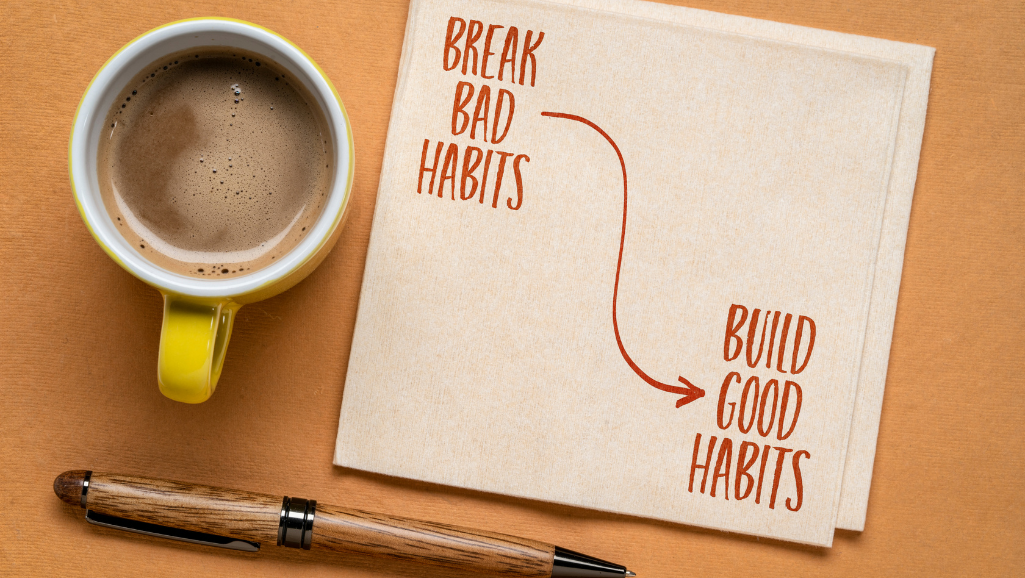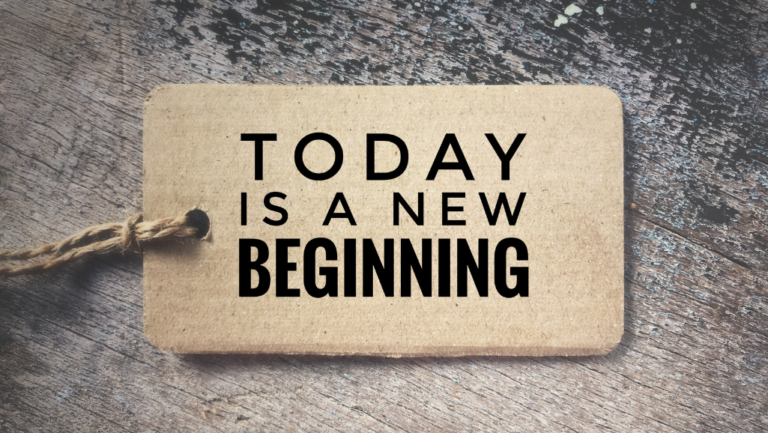How you start your day can shape everything that follows. A well-crafted morning routine acts as a foundation for productivity, focus, and positivity. It’s not about copying what others do but finding what works best for you.
Small changes, like hydrating as soon as you wake up, can make a big difference. Listening to your body and experimenting with different practices helps you create a routine that feels natural and energizing.
A consistent morning routine can light up both your physical and mental state. It’s the spark that sets the tone for a successful day. By making intentional choices early on, you’re setting yourself up for greatness.
Key Takeaways
- A personalized morning routine boosts productivity and focus.
- Hydrating first thing sets a positive tone for the day.
- Experimentation helps you find what works best for you.
- Consistency in your routine enhances mental and physical well-being.
- Intentional morning choices lead to a more successful day.
Introduction to Morning Activities
Establishing a structured start to your day is a game-changer. A well-defined routine helps you take control of your time and energy. It’s not just about what you do but how you do it. Small, intentional steps can make a big difference.
Defining a Morning Routine
A morning routine is a series of actions you take to set a positive tone for the day. It could be as simple as drinking water, journaling, or meditating. Preparing the night before, like laying out workout clothes or prepping breakfast, can save time and reduce stress.
Benefits of Consistent Morning Practices
Consistency in your routine can reduce stress and improve your mood. It balances physical, emotional, and mental well-being. Even the simplest thing, like making your bed, can create a sense of accomplishment and set a productive tone.
Key Elements of an Effective Morning Routine
Focusing on physical, emotional, spiritual, and mental health creates a strong foundation. A well-rounded routine addresses these dimensions, ensuring you feel balanced and energized. Tailoring these elements to your needs makes the routine sustainable and transformative.
Physical Component
Starting with physical activity wakes up your body and mind. A brisk walk or a quick workout boosts energy levels. Hydration is equally important. Drinking water first thing improves cognitive performance and sets a positive tone for the day.
Emotional Component
Practices like gratitude journaling or affirmations uplift your mood. These small steps help you focus on positivity. For a kid, this could mean sharing something they’re thankful for. It’s a simple yet powerful way to build emotional resilience.
Spiritual Component
Meditation or reflective thinking fosters inner peace. Even a few minutes of mindfulness can reduce stress. This practice helps a person connect with their deeper self, creating a sense of calm and purpose.
Mental Component
Planning your day or setting goals sharpens focus. Tackling the most challenging task first builds momentum. This approach ensures you’re mentally prepared to handle whatever comes your way.
By integrating these components, you create a routine that’s both effective and adaptable. It’s not about perfection but progress. Small, consistent steps lead to lasting change.
Customizing Your Routine for Personal Success
Creating a routine that fits your lifestyle is the key to long-term success. Everyone’s needs are different, and your habits should reflect your unique goals and priorities. Whether you’re juggling work, family, or personal health, a tailored approach ensures you’re always at your best.
Identifying Your Unique Needs
Start by assessing your lifestyle. What are your priorities? Do you need more time for self-care or to prepare a healthy breakfast? Experiment with different practices to see what works best for you. Small changes, like prepping meals the night before, can make a big difference.
Consider your family dynamics too. If you have kids, involve them in your routine. Simple steps, like laying out clothes or setting the table for breakfast, can save time and reduce stress. The goal is to create a routine that feels natural and sustainable.
Adapting to Life’s Changing Rhythms
Life is full of transitions, and your routine should adapt accordingly. Starting a new job, moving, or welcoming a new family member can disrupt your flow. Be flexible and open to change. What worked last year might not work now.
Preparing the night before can ease the morning rush. Lay out your clothes, pack your bag, or prep ingredients for breakfast. These small steps create a smoother start to your day. Remember, your routine is a tool to support you, not a rigid set of rules.
By tuning in to your personal cues, you can craft a routine that fuels success. It’s about progress, not perfection. With time and experimentation, you’ll find what works best for you.
Morning Activities: The Ultimate List
Kickstart your day with a variety of energizing practices. A well-rounded routine can transform your mindset and boost productivity. Here’s a curated list of actions to help you feel refreshed and focused.
Top Pick Morning Activities to Energize Your Day
Starting with a brisk walk is a great way to wake up your body and mind. It’s simple, effective, and sets a positive tone. If you prefer something more intense, a quick workout can increase energy levels by up to 30%.
Meditation is another powerful tool. Even 10 minutes of mindfulness can reduce stress and improve focus. Journaling, especially gratitude journaling, is a great way to cultivate positivity and emotional resilience.
Reading or listening to an inspiring podcast can stimulate your mind. It’s a great way to learn something new or gain motivation. For a refreshing start, try a cold shower. It’s invigorating and boosts self-discipline.
Preparing a healthy breakfast is essential for sustained energy. Include foods rich in protein and fiber to keep you full and focused. Even one of these practices can make a significant difference in your day.
Experiment with these ideas to find what works best for you. Small tweaks in your routine can lead to huge improvements in productivity and well-being. Start with one activity and build from there.
Hydration and Nutrition to Fuel Your Morning
Fueling your body right from the start sets the stage for a productive day. Proper hydration and a nutritious breakfast are essential parts of any successful routine. These simple steps can boost energy, improve focus, and keep you feeling great all day long.
Starting With a Glass of Water
Your body loses water overnight, so rehydrating first thing is crucial. Drinking a glass of water, especially with lemon, kickstarts digestion and helps detoxify your system. It’s a small but powerful part of your morning routine.
Scientific studies show that hydration improves cognitive function and energy levels. Even mild dehydration can lead to fatigue and reduced focus. Make it a habit to drink water before anything else.
Healthy Breakfast Ideas to Get Going
A balanced breakfast fuels your body and mind. Opt for nutrient-dense options like eggs, avocado toast, or protein smoothies. These choices provide sustained energy and keep you full longer.
Here are some quick and healthy ideas:
- Avocado Toast: Rich in healthy fats and fiber.
- Protein Smoothie: Blend spinach, banana, and protein powder for a quick meal.
- Oatmeal with Berries: A low-GI option that keeps energy levels stable.
Preparing breakfast the night before can save time and reduce stress. Chop veggies, boil eggs, or blend smoothie ingredients ahead of time. This small step ensures a smooth start to your day.
For more tips on optimizing your morning nutrition, check out this guide from Mayo Clinic.
Incorporating Exercise and Movement
Adding movement to your day can transform how you feel and perform. Even short bursts of physical activity release endorphins, reduce anxiety, and boost energy. It’s a simple yet powerful idea that can make a big difference in your routine.
Movement doesn’t have to be complicated. A quick stretch or a brisk walk can wake up your body and mind. The key is consistency. Doing one thing every day, like a 5-minute yoga sequence, can set a positive tone for the hours ahead.
Quick Workouts and Stretch Routines
Short workouts are perfect for busy schedules. Dynamic stretching, bodyweight squats, or a quick HIIT session can activate your muscles and improve flexibility. These exercises take just minutes but offer lasting benefits.
Here are some effective options:
- Dynamic Stretching: Improves mobility and reduces stiffness.
- Bodyweight Squats: Strengthens legs and core.
- HIIT Workouts: Boosts heart health and burns calories.
As the Mayo Clinic highlights, even a 30-minute walk can enhance your health. It’s a practical idea that fits into any routine.
Mindful Movement for a Productive Day
Mindful movement combines physical activity with mental focus. Practices like yoga or tai chi not only improve flexibility but also reduce stress. They’re a great way to start your day with clarity and calm.
“Movement is a medicine for creating change in a person’s physical, emotional, and mental states.”
Even one thing as simple as deep breathing during stretches can enhance mindfulness. It’s about being present in the moment and connecting with your body.
By incorporating movement into your routine, you’re investing in your well-being. It’s a small change with big rewards.
Boosting Mental Clarity Through Meditation and Journaling
Clearing your mind early can set the tone for a productive day. Meditation and journaling are powerful tools to help you start day with focus and calm. These practices reduce stress, enhance creativity, and improve decision-making.
Studies show that even a few minutes of mindfulness can restore calm and improve focus. Journaling, on the other hand, helps process thoughts and set intentions. Together, they create a strong foundation for mental clarity.
Meditation Techniques for Beginners
Starting with meditation doesn’t have to be overwhelming. Guided audio sessions or simple breathwork exercises are great for beginners. Focus on your breathing for 5-10 minutes to calm your mind and reduce stress.
Here are some beginner-friendly techniques:
- Guided Meditation: Use apps like Calm or Headspace for structured sessions.
- Breathwork: Inhale for 4 counts, hold for 4 counts, and exhale for 6 counts.
- Body Scan: Focus on relaxing each part of your body, starting from your toes.
Consistency is key. Even a short daily practice can make a big difference in your mental clarity.
Journaling Prompts to Clear Your Mind
Journaling is a simple yet effective way to process thoughts and emotions. Start with prompts that encourage self-reflection and gratitude. This practice helps you start day with a positive mindset.
Try these prompts:
- What are three things I’m grateful for today?
- What is one task I want to accomplish today?
- How can I approach challenges with a calm mind?
Journaling also helps you track progress and identify patterns in your thoughts. It’s a powerful tool for self-awareness and growth.
By incorporating meditation and journaling into your routine, you create space for mental clarity. This sets the stage for a focused and productive day. Start small, stay consistent, and watch how these practices transform your mindset.
Complementary Tips: Habit Stacking and Daily Goal Setting
Building habits that stick doesn’t have to feel overwhelming. By linking new habits to existing ones, you can create a seamless routine that works for you. This approach, known as habit stacking, helps you build momentum every single day.
Implementing Habit Stacking Effectively
Habit stacking is about pairing a new habit with something you already do. For example, if you drink coffee every single morning, use that time to jot down your top three tasks for the day. This simple step can make your routine more intentional and productive.
Start small. Add one new habit at a time to avoid feeling overwhelmed. Over the course of a year, these small changes can lead to significant improvements in your daily life. Consistency is key, even if you’re not a natural morning person.
Setting Achievable Daily Goals
Goal setting in the morning helps you focus on what truly matters. Write down your top three tasks and tackle the hardest one first. This approach builds momentum and ensures you’re making progress every single day.
Break larger goals into smaller, actionable steps. For example, if your goal is to exercise more, start with a 10-minute walk. Over time, these small steps add up, helping you stay consistent throughout the year.
“Small habits, when repeated consistently, lead to big results.”
Even if you’re not a morning person, these practices can help you create a routine that works for you. By focusing on progress, not perfection, you’ll build habits that last a lifetime. For more tips on creating effective daily habits, explore our resources.
Preparing the Night Before for a Smooth Morning
A little preparation the night before can transform your entire day. By taking a few minutes to organize, you can reduce stress and set a positive tone for the hours ahead. Whether it’s laying out clothes or prepping breakfast, these small steps make a big difference.
Studies show that 70% of parents who prepare the night before experience less stress in the morning. This simple habit can also improve your mood, helping you start the day with a clear mind and a sense of accomplishment.
For families, evening preparation is especially important. Children who follow a structured routine are 30% more likely to arrive at school on time. Simple tasks like packing lunches or setting out outfits can save valuable time and reduce chaos.
Here are some practical tips to get started:
- Lay out clothes: Choose outfits for the entire week to save time.
- Prep breakfast: Chop fruits or prepare overnight oats for a quick meal.
- Organize essentials: Pack bags, set out keys, and charge devices.
Evening preparation isn’t just about saving time—it’s about creating a calmer, more intentional start to your day. By investing a few minutes the night before, you can set yourself up for success every single week.
“Preparation is the key to reducing stress and increasing productivity.”
For parents, involving kids in these tasks can also build responsibility and confidence. Simple steps like letting them choose their clothes or pack their backpacks can make a big difference in their school readiness.
By making evening preparation a habit, you’ll notice a significant improvement in your mood and overall efficiency. It’s a small investment of time that pays off exponentially throughout the day.
Digital Detox: Avoiding Early Screen Time
The first moments after waking set the tone for everything that follows. Reaching for your phone can instantly flood your mind with distractions, making it harder to focus on your goal for the day. Instead, a screen-free start allows your brain to reset and recharge, setting a calm and intentional pace.
Studies show that 70% of adults experience symptoms of screen fatigue, including blurred vision and stress. By avoiding screens early, you give yourself space to focus on self-care tasks like hydrating, stretching, or journaling. This simple shift can reduce stress and improve mental clarity.
Establishing a Screen-Free Start
One effective word to describe this practice is “intentionality.” Begin by keeping your phone in another room or using a traditional alarm clock. This small step ensures you’re not tempted to check notifications as soon as you wake up.
Here are some actionable tips to help you succeed:
- Set a clear goal: Decide how you want to spend your first 30 minutes without screens.
- Create a calming routine: Use this time for meditation, reading, or enjoying a quiet moment in bed.
- Prepare the night before: Charge your phone outside the bedroom to eliminate temptation.
“A screen-free start allows you to take control of your day, rather than letting it control you.”
By starting your day without digital input, you set a calm and controlled pace. This practice not only reduces stress but also helps you stay focused on your goals. Over time, it becomes a powerful habit that transforms how you approach each day.
Inspiring Practices for Emotional and Spiritual Well-Being
Nurturing your emotional and spiritual well-being can transform how you approach each day. Simple practices like gratitude, affirmations, and mindful breathing can create a sense of calm and purpose. These rituals help you connect with yourself and set a positive tone for the hours ahead.
Gratitude and Affirmation Rituals
Starting your day with gratitude can shift your mindset toward positivity. Take a moment to reflect on what you’re thankful for. For example, jot down three things that bring you joy or peace. This simple act can improve your mood and reduce stress.
Affirmations are another powerful tool. Repeat phrases like “I am capable” or “I am at peace” to set a positive tone. These statements help you focus on your strengths and goals. Over time, they build confidence and resilience.
Here’s a quick example of a gratitude and affirmation routine:
- Write down three things you’re grateful for.
- Repeat affirmations that resonate with your goals.
- Take a deep breath and visualize your day going well.
Mindful Breathing Exercises
Mindful breathing is a simple yet effective way to center yourself. It helps reduce anxiety and enhances focus. Start by finding a quiet space to rest and breathe deeply. Inhale for four counts, hold for four, and exhale for six.
This technique calms your nervous system and clears your mind. Even a few minutes can make a big difference. For example, try this exercise before tackling a challenging task to boost clarity and confidence.
Here’s a step-by-step guide to mindful breathing:
- Sit comfortably and close your eyes.
- Focus on your breath, inhaling deeply through your nose.
- Hold the breath briefly, then exhale slowly through your mouth.
- Repeat for 5-10 minutes, letting go of distractions.
“Gratitude turns what we have into enough, and mindfulness turns the present moment into peace.”
Make a personal note of what works best for you. Whether it’s gratitude, affirmations, or breathing exercises, these practices can create a lasting emotional impact. Start small, stay consistent, and watch how they transform your well-being.
Family-Centric Morning Routines
Starting your day with family can create a sense of unity and purpose. When everyone is involved, routines become more meaningful and productive. This approach not only strengthens bonds but also sets a positive tone for the hours ahead.
Integrating family members into your routine fosters a shared sense of calm and accomplishment. Simple tasks, like preparing breakfast together or setting the table, can make everyone feel included. These moments build emotional connections and mutual support.
Engaging Kids and Partner in Your Routine
Involving kids in your routine can be both fun and educational. Assign them small tasks, like laying out clothes or packing their backpacks. This not only saves time but also teaches responsibility and independence.
For partners, consider activities that promote teamwork, like a quick walk or a gratitude circle. These practices enhance well-being and create lasting memories. Even a few minutes of quality time can make a big difference.
Here are some creative ideas to try:
- Family Gratitude Circle: Share what you’re thankful for each day.
- Joint Journaling: Write down your goals or reflections together.
- Morning Walks: Start the day with fresh air and light exercise.
“Family routines are the foundation of a harmonious and productive day.”
By investing time in family-centric routines, you enrich everyone’s well-being. These practices create a sense of belonging and set the stage for a successful day. For more tips on creating effective family-centric morning routines, explore our resources.
Creative and Educational Morning Exercises
Engaging your mind early can spark creativity and focus for the day ahead. A lot of people find that incorporating creative and educational tasks into their routine helps them feel more inspired and productive. These exercises don’t have to be complicated—small, intentional actions can make a big difference.
Starting with a creative exercise like reading or journaling can set a positive tone. These activities stimulate your brain and prepare you for the challenges ahead. Whether it’s solving a puzzle or diving into a motivational book, these practices unlock a lot of potential for growth.
Reading, Self-Education, and Creative Hobbies
Reading is one of the most effective ways to stimulate your mind. A number of studies show that reading in the morning improves focus and cognitive function. Choose books that inspire or educate you, and even a short chapter can make a difference.
Creative hobbies like drawing, writing, or playing an instrument also offer great benefits. These activities engage different parts of your brain, enhancing problem-solving skills and emotional well-being. For example, journaling your thoughts can help you process emotions and set clear intentions for the day.
Self-education is another powerful tool. Spend a few minutes learning something new, whether it’s a language, a skill, or an interesting fact. This practice not only boosts knowledge but also keeps your mind sharp and curious.
“Creativity is intelligence having fun.” – Albert Einstein
Here are some examples of creative and educational exercises to try:
- Read a chapter of an inspiring book to start your day with motivation.
- Solve a puzzle or play a brain-teasing game to challenge your mind.
- Journal your thoughts or write down goals to clarify your focus.
- Engage in a hobby like painting, knitting, or playing music to spark creativity.
These activities don’t require a lot of time, but they offer a number of benefits. They improve focus, reduce stress, and set a growth-oriented tone for the rest of the day. For more ideas on engaging morning exercises, explore this resource.
By incorporating these practices into your routine, you’ll notice a significant improvement in your mental clarity and overall well-being. Start small, stay consistent, and watch how these exercises transform your day.
Adapting Your Routine for Various Lifestyles
Tailoring your routine to fit your unique lifestyle is the cornerstone of long-term success. Whether you’re an entrepreneur, a work-from-home professional, or a stay-at-home parent, flexibility is key. A one-size-fits-all approach rarely works, but with a few adjustments, you can create a routine that empowers you to thrive.
Entrepreneurial and Work-from-Home Tips
For entrepreneurs and remote workers, irregular schedules are common. Start by creating a power list of non-negotiable tasks. This ensures you focus on what truly matters, even on a busy day. Prioritize tasks using techniques like the Eisenhower Matrix to categorize urgency and importance.
Incorporate breaks to recharge. A short walk or a mindfulness session can boost productivity. On a rest day, use the time to reflect and plan for the week ahead. This balance helps maintain energy and focus over the long term.
Stay-at-Home Parent Strategies
Stay-at-home parents juggle multiple responsibilities, making adaptability essential. Start by carving out personal time, even if it’s just 10 minutes for a cup of tea or a quick stretch. This small act can set a positive tone for the day.
Involve your family in the routine. Assign tasks like setting the table or packing lunches to teach responsibility and save time. On a rest day, focus on activities that bring joy and connection, like a family game or a creative project.
Flexibility is the power behind a sustainable routine. By adapting to your unique needs, you create a foundation for success. Experiment, adjust, and find what works best for you. Remember, it’s about progress, not perfection.
Mixing Up Your Routine with Flexibility and Experimentation
Flexibility is the secret ingredient to keeping your routine fresh and effective. Over time, even the best habits can feel stale. That’s where experimentation comes in. By trying new approaches, you can reignite your energy and stay motivated.
View your routine as an evolving process. What works today might not work tomorrow. Regularly experimenting with new habits keeps things exciting. For example, switch up your workout or try a different meditation technique. These small changes can make a big difference.
Flexibility is the solution to routine stagnation. If you’re feeling stuck, rearrange the order of your tasks. Start with journaling instead of exercise, or read for an hour before diving into work. These shifts can bring renewed energy and focus.
Experimentation also boosts your physical and mental health. Trying new activities challenges your brain and body. It keeps you engaged and prevents burnout. Over time, this approach leads to a more balanced and fulfilling life.
“The only way to discover the limits of the possible is to go beyond them into the impossible.” – Arthur C. Clarke
Here are some ways to incorporate flexibility into your routine:
- Switch up your environment: Move your reading chair or try a new workout space.
- Try new habits: Replace meditation with yoga or journaling with sketching.
- Adjust your schedule: Dedicate an hour to a hobby or self-care activity.
Remember, flexibility is the solution to staying inspired. By embracing change, you create a routine that adapts to your needs. This approach not only improves your health but also keeps you excited about each new day.
Conclusion
A mindful start to your day can transform your entire life. By investing in a well-planned routine, you set the foundation for productivity, focus, and emotional balance. Small, intentional changes—like hydrating first thing or practicing gratitude—can create a ripple effect throughout your day.
This article has explored how a structured approach to your life can lead to greater success. From physical movement to mental clarity, each element plays a vital role in shaping your mindset. Even the simplest habits, when practiced consistently, can yield significant benefits over time.
Use the tips and examples provided as a table to craft your own personalized rituals. Whether it’s journaling, exercising, or simply preparing the night before, these strategies can help you build a routine that works for you.
Start today. Take the first step toward a more fulfilling life. With dedication and flexibility, you can create a routine that empowers you to thrive every single day.











